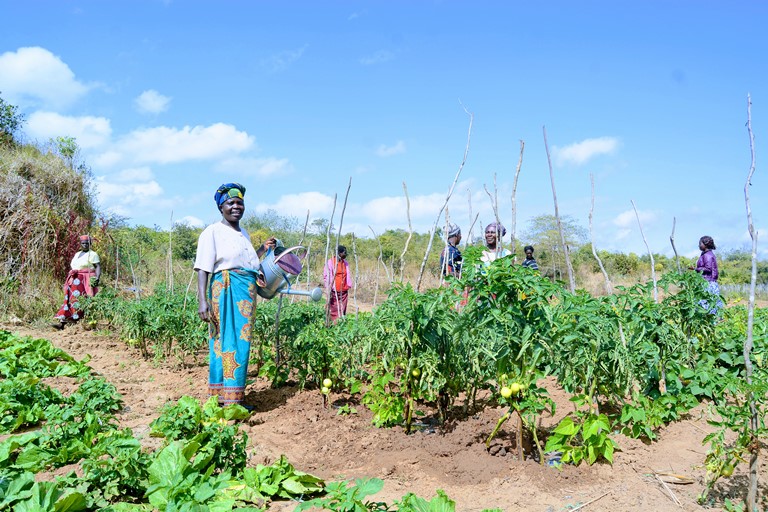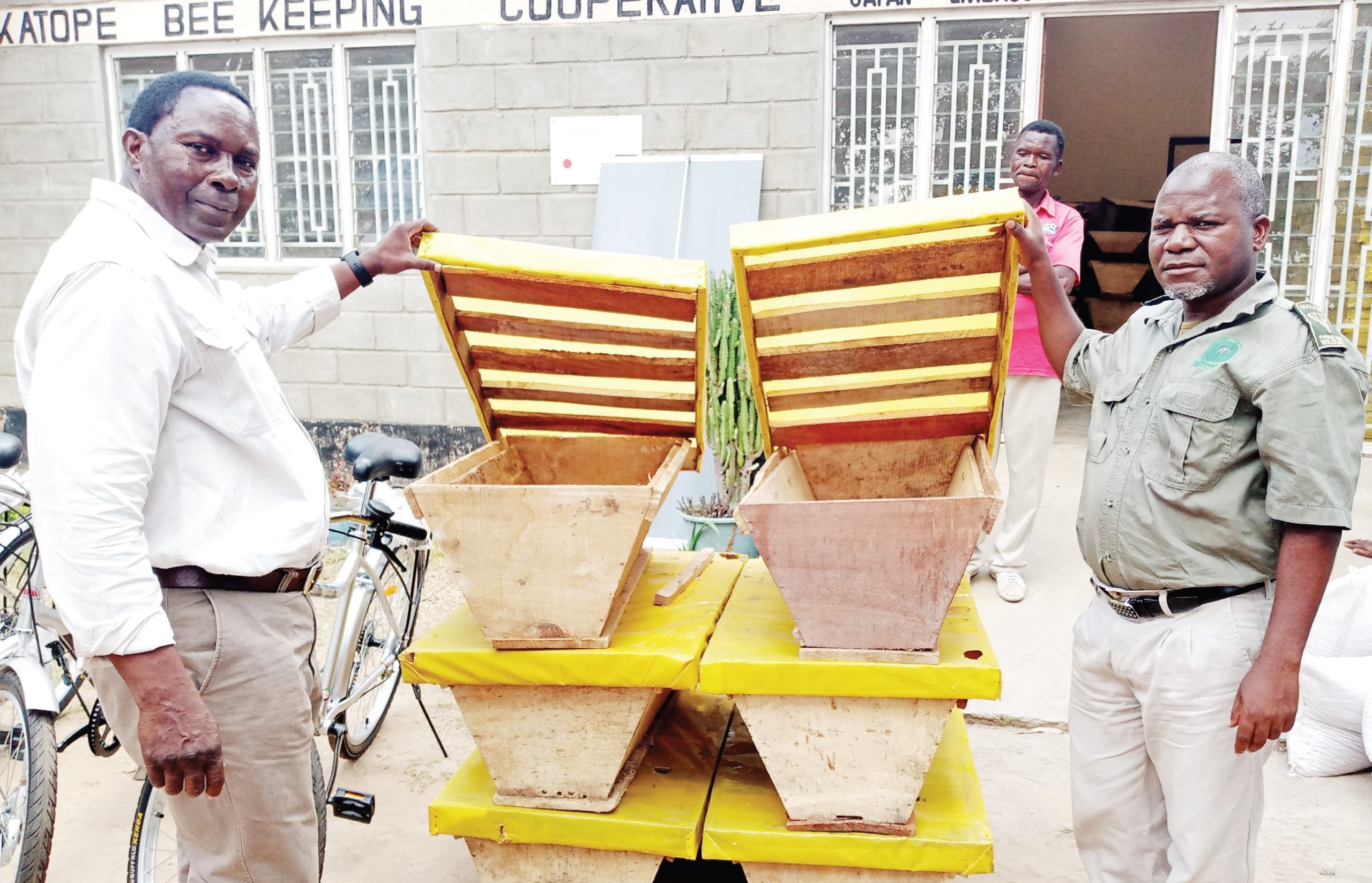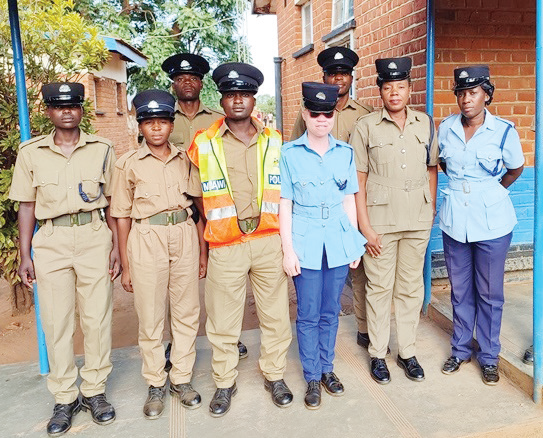Stepping up rural resilience to Covid-19
The impact of the Covid-19 is largely pronounced in the urban areas, but the rural areas of Malawi have equally been silently hit hard. So how are rural folks coping? Contributor THOKOZANI CHENJEZI finds out:
Sprinting to wreak more social-economic havoc across the country, the Covid-19 beast has left people with scars, tormented hearts and in despair wherever it unleashes its terror.

But the more fearful it comes, the equally giant steps communities of Ekwendeni and Enukweni in Mzimba District are taking, one at a time, to face the monster head on.
It’s fire against fire. They refuse to give up the social-economic gains they have made over the years due to the disruption of life the pandemic has brought.
Since the Ekwendeni Mission Hospital HIV and Aids Programme (EHAP), a faith based organisation operating under primary health care (PHC) of Ekwendeni Mission Hospital of the CCAP Synod of Livingstonia, started its work in the area about 40 years ago, it has worked with communities in promoting primary health care so as to reduce the disease burden in the area.
EHAP has implemented programmes in maternal and child health, malaria control, family planning, child survival, HIV and Aids, savings and credit, food security, micro-nutrient and health, saving newborn lives, water and sanitation, mental health, and tuberculosis in 411 villages within Ekwendeni hospital catchment area and in Enukweni in Rumphi, targeting approximately 100 000 direct and indirect beneficiaries.
While the impact of the Covid-19 is largely pronounced in the urban areas, the rural areas of Malawi have equally been silently hit hard and Ekwendeni and Enukweni have not been spared.
Home Based Care (HBC) volunteers, women self-help groups (SHGs), village education committees (VEC) among other rural social structures that facilitate social development have been shaken and their resilience tested to the core.
Chairlady for Chisomo Self Help Group, Agnes Tchongwe says her group was initiated by EHAP with the aim of ending hunger, poverty and enhancing economic empowerment among women in Enukweni but now faces the blunt effects of Covid-19.
“We rely on selling agricultural value-added products like cakes made from yellow sweet potato flour which we make with skills acquired from EHAP. But now people are afraid to buy because of perceptions that they may contract coronavirus through contaminated food or from us handling the food,” says Tchongwe.
“We sell the foodstuffs in surrounding schools, markets, football matches and choir festivals. But all those gatherings are discouraged. Business has gone down.”
Sharing Tchongwe’s experience is Dailesi Mavimba of Chisomo SHG from Yesaya Jere Village in Ekwendeni, who laments the slowing down in business has resulted in the women defaulting weekly contributions to the savings and credit initiative which enables them to raise capital and provide the members with low cost flexible loans.
Despite the challenges, the women SHGs remain focused to achieve their goals.
Sellah Mhango of Jomizo SHG says the women are now focusing more on increasing agricultural production in yellow maize, NUA beans and yellow sweet potatoes, among other crops, whose seeds and vines they got from EHAP.
“We are now working much more in crop fields because it’s easy to work sparsely and keep distance unlike in our compact markets where the risk of the spread of Coronavirus is higher. So we still work hard and do not let Covid-19 kill our dream,” says Mhango.
Tchongwe says the women are now looking for other means of making money like doing piece work, as well as adjusting the set-up of their meetings.
“When meeting, we have adopted the strategy where we stretch our legs to create a one-meter distance amongst ourselves, each one facing the back of another, but in smaller groups. Life must continue,” she says.
While the second wave of Covid-19 in Malawi has been an unprecedented phenomenon, communities around Ekwendeni and Enukweni have turned to hygiene as one of the strategies to combat the pandemic.
Top innovation that the villages in the area is the Mponda-gear handwashing facility.
Mponda-gear comprises a suspended water bucket which is hanged to a horizontal stick. A rope is attached to the water bucket and a beacon. By stepping on the rope, the water bucket tilts and spills the water freely which enables a person to wash hands without touching any object hence avoiding contracting any germs.
“We learnt this Mponda-gear from EHAP to promote hand-washing for general hygiene practices like after toileting or before preparing food. But now we have adopted using Mponda-gear to enhance handwashing as a measure against Covid-19,” said Rhoda Zungu, a volunteer for Efeni Home Based Care (HBC) group.
She added that the innovation is proving vital especially among children as it has been popularised in school, early child development centers and churches.
The Covid-19 pandemic has also greatly affected home based care services which volunteers in the villages render to chronically ill patients, including those living with HIV and Aids.
Joseph Mughogho, volunteer for Enukweni HBC groups says their role is to monitor chronically ill patients, making sure they are on treatment and not defaulting, providing them with primary care and where necessary take them to the hospital.
He lamented that the volunteers lack personal protective equipment (PPE) despite that they are the ultimate first responders to suspicious ailments in the village before they report to health officials.
“We also provide actual home care of patients like bathing patients. So we are now afraid to handle them. When they cough we run away because we are not sure whether it’s Covid-19,” said Mughogho who expressed fear some patients might be dying of other ailments due to lack of proper home-based care.
He said the HBC volunteers are still working but now in smaller groups and only when they have basic PPEs while concentrating on care that requires less contact and emphasizing on the need to refer patients to hospital.
Primary Health Care Director at Ekwendeni mission hospital Kistone Mhango says the hospital has made massive sensitisation campaigns about Covid-19 dangers and preventive measures in support of the hospital’s curative part.
“But we need more support especially medical materials for our hospital staff and volunteers who provide home-based care support to chronic patients in the villages as they are at a higher risk too,” said Mhango.
He added that people around the hospital’s catchment area have been greatly affected social-economically hence need safety net initiatives to cushion their lives and avoid escalation of other diseases and Covid-19 non-related deaths.





